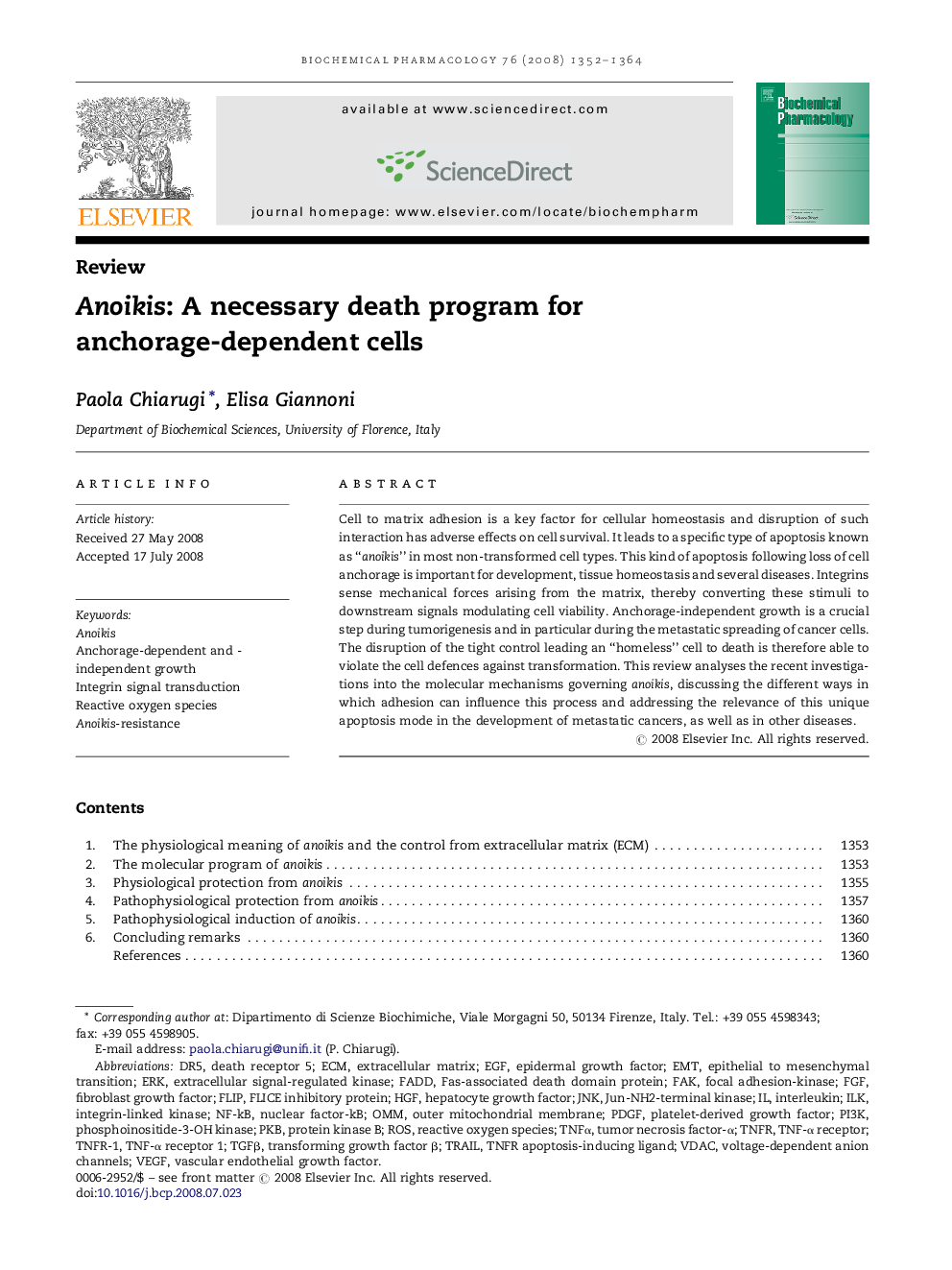| Article ID | Journal | Published Year | Pages | File Type |
|---|---|---|---|---|
| 2514541 | Biochemical Pharmacology | 2008 | 13 Pages |
Cell to matrix adhesion is a key factor for cellular homeostasis and disruption of such interaction has adverse effects on cell survival. It leads to a specific type of apoptosis known as “anoikis” in most non-transformed cell types. This kind of apoptosis following loss of cell anchorage is important for development, tissue homeostasis and several diseases. Integrins sense mechanical forces arising from the matrix, thereby converting these stimuli to downstream signals modulating cell viability. Anchorage-independent growth is a crucial step during tumorigenesis and in particular during the metastatic spreading of cancer cells. The disruption of the tight control leading an “homeless” cell to death is therefore able to violate the cell defences against transformation. This review analyses the recent investigations into the molecular mechanisms governing anoikis, discussing the different ways in which adhesion can influence this process and addressing the relevance of this unique apoptosis mode in the development of metastatic cancers, as well as in other diseases.
